Premium Only Content
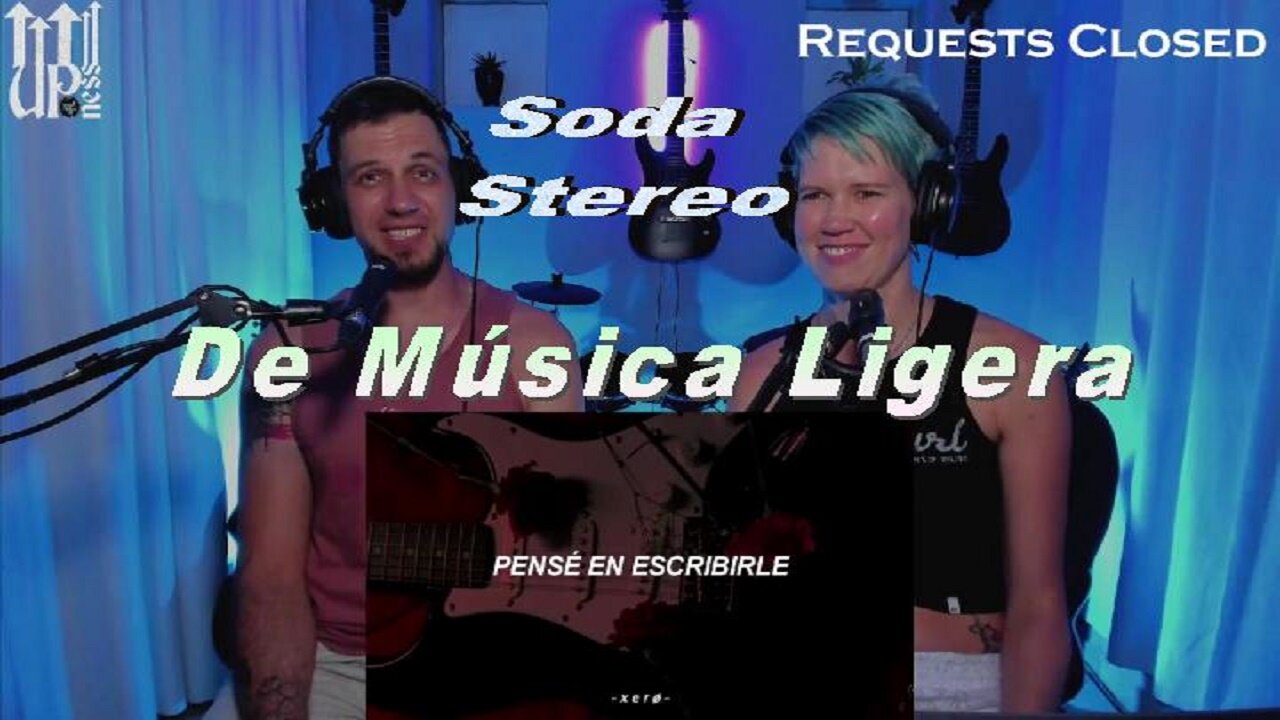
Soda Stereo - De Música Ligera - **1st Time Reacting** Live Streaming Reactions with Songs and Thongs
**1st Time Reacting** My request to Songs and Thongs link to their page https://www.youtube.com/@SongsandThongs & https://www.youtube.com/@SandTLive
Like and Share this video
0:00 Intro
0:30 Soda Stereo - De Música Ligera Reaction
5:29 Closing Remarks
Link to Original Video
https://www.youtube.com/watch?v=T_FkEw27XJ0
Soda Stereo was an Argentine rock band formed in Buenos Aires in 1982. The band's lineup consisted of lead singer and guitarist Gustavo Cerati, bassist Zeta Bosio, and drummer Charly Alberti. During their career, the band released seven studio albums before disbanding in 1997.
The band's 1984 self-titled debut album featured a new wave and ska influenced sound, which evolved into a post-punk style found on their subsequent albums Nada personal (1985), Signos (1986), and Doble Vida (1988). The band's 1990 album Canción Animal featured the alternative rock anthem "De Música Ligera", their best-known song in Latin America. On their last two albums, Dynamo (1992) and Sueño Stereo (1995), their sound evolved to incorporate genres such as shoegaze and art rock. Their farewell concert on 20 September 1997 at the Estadio Monumental in Buenos Aires was released later that year on the live albums El Último Concierto A and B.
Soda Stereo are the best-selling band in the history of Argentina, setting landmarks in record sales and concert attendances. The band has sold more than 7 million copies worldwide as of 2007.
All three members remained musically active following the band's split, with Cerati embarking on a successful solo career. Soda Stereo reunited for the Me Verás Volver concert tour in 2007 and played their final concert on 21 December 2007. Cerati suffered a stroke after performing a solo show in Caracas, Venezuela, on May 15, 2010. He was hospitalized in Buenos Aires, Argentina, and fell into a coma for 4 years. He died on September 4, 2014 from respiratory arrest. Bosio and Alberti reunited Soda Stereo in 2020 for the Gracias Totales tour, which featured several guest singers including Cerati's son Benito and Coldplay’s frontman Chris Martin.
Soda Stereo recorded their debut during the second half of 1984. The album was produced by Federico Moura, the vocalist for Virus. By that time, Moura and Cerati had developed a fruitful artistic relationship. The recording took place in the defunct studios of CBS Records on Paraguay street. The end result was cooler sound than of the live shows, which the bands were pleased with. The trio was aided by Daniel Melero on keys and Gonzo Palacios on sax. Both were listed as "guest musicians", a practice which would become common for Soda throughout their career. Such guest musicians would be recognized by the public as the "fourth Sodas".
The attention garnered by Soda enabled them to play at larger and larger venues. First was "La Esquina Del Sol" in Palermo. Their show at "El Recital De Los Lagos" on 1 and 2 December was their first to headline along with top Argentine acts. The show was hosted by Argentine television personality Juan Alberto Badía.
Soda Stereo presented their debut album at El Teatro Astros on 14 December 1984, their first show at the venue. Notably, the TVs were turned on and out of sync with each other to the theme of "Sobredosis de TV" (TV Overdose), creating a captivating visual effect.
On 26 January 1985, Soda played the Rock in Bali festival in Argentine port city of Mar del Plata. On 17 March, they played the Festival Chateau Rock '85 at the Estadio Olímpico Chateau Carreras in front of a claimed audience of fifteen thousand. However, Córdoba media outlets claim that "only half the number of people actually showed up" and that Soda were "hardly noticed because their first record had was just released a few months earlier." They also added "Raul Porchetto was the biggest draw of the night". Regardless, their presence at Chateau sparked a personal relationship between the band and the youth of Córdoba, it marked the moment that the band began to take flight toward national stardom.
The success of the band began at a very peculiar time, related, on one hand with the return of democracy to Argentina (10 December 1983), and on the contrary, with increasing notions of postmodernism, particularly in the way the 1980s youth created their role in a newly democratic society, one that had just emerged from bloody dictatorship and war.
Years later, Zeta Bosio would reflect on this juncture:
The democracy produced the adrenaline of something new, something was occurring, I knew I was going to make changes without knowing how. There was more air for us to make things and to wander, and we were a band of kids that wanted to make trouble. Our attention was on punk and on trying to show that there was something else that was more direct.
On 13 October of that year, Soda played in front of a large audience in Buenos Aires as part of the third night of the Festival of Rock and Pop Held at the José Amalfitani Stadium home of the soccer club Velez Sarsfield. They shared the stage with INXS, Nina Hagen, Charly García, Virus, and Sumo, among others. By then Fabian "Vön" Quintero and Gonzo Palacios were "stable guests".
Latin American success (1986–1989)
In 1986 hundreds of Chilean youths received Soda Stereo as popular idols. The song that created this first contact was Nada persona" (Nothing Personal) which became a radio hit. A little later in February 1987 Soda had a strong showing at the Viña del Mar International Song Festival, again in Chile. This, in effect, opened the doors to the rest of Latin America.
In 1986 Soda Stereo made their first Latin American tour, called Signos – still touring with the Nada personal record. The band played in Colombia, Costa Rica, Peru, and Chile with considerable success. In Chile they gave four performances in Santiago, on 21, 22, 24, and 25 November, and one in Valparaíso on 22 November 1986. In November 1986 Soda arrived in Peru for the first time and revolutionized the market. Their album sales were good and their three shows at the Amauta Coliseum were successful.
At that time Latin rock was not that popular with the youth of Latin America (with the exceptions of Argentina and Uruguay) and bands were not accustomed to international tours.
First United States concerts (1985–1986)
In 1985, Soda Stereo visited Los Angeles California for a press tour and was interviewed by Miguel Banojian, a U.S. journalist with a degree from UCLA Los Angeles, who at the time was also the first Hispanic rock concert promoter in Los Angeles, and was scheduling Hispanic music concerts in the Hollywood area in clubs like Whisky a Gogo, the Rainbow & Paladium Theater hall; Mr. Banojian with the support of the record label and the sponsorship of M&M Chocolate brand scheduled Soda Stereo's first United States concert at the Paladium hall in Vine Blvd with a packed audience of more than 2,200 people, later on the same Year Mr. Banojian repeated the show at the same theater with a second sold out show, from that moment on Soda Stereo started to be played in radio stations in the U.S and several television interview were followed.
On 10 November 1986 the band released their third album Signos. With its lead single "Persiana Americana" (American Blinds), Signos was a key step for Soda Stereo, who by now had come under a great deal of stress due to ever increasing factors: sales expectations, external pressures, the risk of failure, and internal tensions. The band was joined in the studio by Fabián Vön Quintiero [es] on keys, Richard Coleman on guitar and Celsa Mel Gowland on backup vocals. Signos became the first Argentine rock album to be released on compact disc. It was manufactured in the Netherlands and distributed throughout Latin America.
On 3 December Soda made their first appearance in Ecuador. In early 1987 Soda returned to Chile, this time to the Viña del Mar International Song Festival where they won the prize "Antorcha de Plata" (Silver Torch). The festival was broadcast via television to many Latin American countries, expanding the band's fame throughout the continent. It did not take long to transform itself into a massive unconditional following which was called "Sodamania".
On 23 April 1987, Soda broke records for ticket sales in Paraguay with their show at the Yacht Club. Meanwhile, Signos reached Platinum status in Argentina, triple platinum in Perú and double platinum in Chile. Soda's first show in Mexico occurred on 4 August 1987 at the Magic Circus in Mexico City.
The Signos tour was a milestone for Soda as they played 22 concerts in 17 cities to almost 350,000 fans, in the process opening up the idea that Latin Rock can transcend the nationalities of the bands, something that would come to fruition in the upcoming decade. With live recordings from different shows, a live album Ruido Blanco was compiled in 1987. Mixed in Barbados, it was considered by Rolling Stone (Argentina) to be one of the top 5 live albums of Argentine Rock.
In late 1988 Soda Stereo were considered the most important band of Latin American pop/rock. They began to work on a new album alongside Puerto Rican producer Carlos Alomar. Alomar had worked with David Bowie, Mick Jagger, Simple Minds, Iggy Pop, and Paul McCartney, among others. Doble Vida (Double Life) was recorded and mixed in New York City and was the first record by an Argentine band to be completely recorded abroad.
The album produced four singles, "Picnic en el 4º B" (Picnic in Room 4B), "En la Ciudad de la Furia" (In the City of Fury), and "Lo Que Sangra (La Cúpula)" (That Which Bleeds (The Dome), and "Corazón Delator" (Tell-Tale Heart). The video for "En La Ciudad de La Furia", directed by Alfredo Lois, was a finalist for an MTV Video Award in the category of best foreign video (there was no Latin MTV at the time).
After more than a year without playing in Buenos Aires, Soda showcased Doble Vida at the hockey field at Obras in front of 25,000 fans. To top of a stellar year, Soda headlined the Three Days for Democracy Festival, which took place in Buenos Aires on the intersection of Avenida del Libertador and 9 de Julio. The show was attended by 150,000 people and Soda shared the stage with Luis Alberto Spinetta Fito Páez, Los Ratones Paranoicos, Man Ray, and others.
With sales of a million copies of Doble Vida under their belt, Soda began a massive tour in early 1989. The tour began with 30 shows in Argentina, covering most of the country, which were attended by nearly 270,000 fans. These shows were followed by a new Latin American tour (their third), which cemented a massive following in Mexico.
Near the end of 1989 Soda records a new version of "Languis" (from Doble Vida) and a new song titled "Mundo de Quimeras" (World of Chimeras). Both songs were released in the EP Languis (1989) along with remixes of "En El Borde" and "Lo Que Sangra (La Cúpula)". Following the release of Languis Soda played two sold-out shows at The Palace in Los Angeles, becoming the second Rock en Español to play in the United States, following Miguel Mateos.
Band breakup and El Último Concierto (1997)
The band went silent for a time preceding the separation. The only publicity was the band's participation on the tribute album, Tributo a Queen: Los Grandes del Rock en Español, in which Soda Stereo covered "Some Day One Day" from Queen's 1974 album, Queen II. Their version was sung in Spanish, as "Algun Día".
Unexpectedly, Soda officially announced their separation in May 1997, through a press release. The following day, Argentine newspapers reported the news. Argentine newspaper Clarín devoted its entire front page to the breakup. The following day, Gustavo Cerati's farewell note was published on the Music section of the newspaper:
This letter has been inspired from what I have seen on the street these days: fans who have approached me, the people around me, and from my own personal experiences. I share the sadness that has been created in many by our separation. I, myself, am immersed in that state because few things have been so important to me in my life as Soda Stereo. Everyone knows that it is impossible to lead a band without a certain level of conflict. It is a fragile equilibrium in the war of ideas that very few are able to handle for fifteen years, as we proudly did. But ultimately, different personal and musical misunderstandings began to compromise that equilibrium... excuses were generated for not confronting ourselves, excuses for a future group that we no longer believed in as we did in the past. To end for the sake of the band is, in its redundancy, to [give importance] to our mental health, and above all to show respect for all of our fans who have followed us for such a long time. Goodbye.
The band played a farewell tour, making stops in Mexico, Venezuela, Chile and their native Argentina. Their final concert took place on 20 September at the River Plate Stadium in Buenos Aires, and was recorded and released in two parts, El Último Concierto A and B. The show ended with the song "De Musica Ligera" and a memorable farewell by Cerati:
(Original, Spanish) ¡No solo no hubiéramos sido nada sin ustedes, sino con toda la gente que estuvo a nuestro alrededor desde el comienzo; algunos siguen hasta hoy! ¡Gracias... totales! (Translation, English) "We would not have been anything without you all, but also without everyone that supported us since the very beginning; some still do till this day! A huge... thank you!"
A DVD of the farewell show was released in 2005. A compilation CD was released later that year titled Chau Soda ("Bye Soda").
In 1995, the band won the Merit Diploma at the Konex Awards for their outstanding career in Argentine music during the decade and the Platinum Konex Award for Best Argentine Rock Band of the Decade. In 2002, they received the first MTV Legend Award for their musical career. In 2006, the American magazine Al Borde listed many of the band's songs among the best 500 songs in the Spanish-speaking Americas. In 2002, the Argentine edition of the Rolling Stone magazine in partnership with MTV issued a list featuring Soda Stereo's songs among the best 100 rock songs in Argentina.
Post Soda
Despite the constant rumors of a reunion, which ironically started shortly after the breakup, little was heard regarding Soda, except for a TV special on El Ultimo Concierto (The Last Concert) produced by HBO and an MTV documentary titled Soda Stereo: La Leyenda (Soda Stereo: The Legend). Finally, in 2002 the trio was reunited at the MTV Latin Music Video Awards where they were awarded the Legend award in honor of their musical and visual trajectory.
Seven years after the breakup and the absence of any new official releases seemed odd. Near the end of 2003 Sony Music announced the release of the first DVD by Soda Stereo, which contained much unreleased material from compiled by Gustavo, Zeta, Charly, and people close to the band. The finished product arrived on the streets in November 2004. It was titled, Soda Stereo: Una Parte de La Euforia (1983–1997) (Soda Stereo: A Part of the Euphoria (1983–1997). On 20 September 2005 an Argentine DVD of Soda's last concert, which took place exactly 8 years before at River Plate stadium was released. It was titled El Ultimo Concierto (En Vivo) (The Last Concert – Live). The DVD, in contrast to the HBO production, featured a 5.1 audio and included two songs that were not aired on the HBO concert, "Juegos de Seduccion" and "Sobredosis de TV". It also included a multi camera option for a soundcheck of "Primavera 0" and a 25-minute documentary about the tour featuring footage of sound checks and concerts in Mexico, Venezuela, and Argentina. It also featured an interview with the long lost "fourth Soda" Alfredo Lois, the director of the DVD, one of his last works before his death.
Soda Stereo has been considered a pioneering Latin rock band. It was the first band to come out strongly in the local limits of their country of origin and to consider Latin America as a unified cultural space for the language, including the US. The result was a popular and widespread identification of Latino youth, above countries, which was made for the Anglo-Saxon rock, but not for the Latin rock, rock in Spanish and Latin American rock, different variants the same cultural-musical phenomenon.
Soda Stereo was the beginning of a globalization movement that incorporated local musicians into a great continental rock movement, up to the point of leading local critics to wonder: "Does it make sense to keep talking about 'national rock'?". In many parts of Latin America, including Colombia, "Soda Stereo became the expression of the musicality and poise of a new generation, one which tried to differentiate themselves from that of those in their thirties in the 1980s who preferred the Dominican merengue, by beginning to listen and sing rock in Spanish."[51] In Chile, Soda not only marked a whole generation with their looks, lyrics and music, but especially by way of the intense emotional relationship developed between the band and its fans, which was a decisive factor to "de-nationalize" the band and make it an expression, and not only young people in a particular country, but youth as a sector uniform social issues and common languages, something that rock and roll had not been achieved so far in the Spanish-speaking countries due to language barrier.
Band members:
Gustavo Cerati – lead vocals, guitars, samplers, synthesizers, MPC60, effects, percussion, fretless bass guitar, keyboards, * Rhodes piano (died in 2014)
Zeta Bosio – bass guitar, backing vocals, samplers, synthesizers, percussion, Chapman Stick, contrabass, guitar.
Charly Alberti – drums, percussion.
Collaborating musicians
Tweety González was one of the most prominent collaborating musicians to work with Soda Stereo and accompanied the band for most of his career.
Discography:
Studio albums
Soda Stereo (1984)
Nada personal (1985)
Signos (1986)
Doble Vida (1988)
Canción Animal (1990)
Dynamo (1992)
Sueño Stereo (1995)
Videography:
Ruido Blanco (1988)
Canción Animal (1991)
Una Parte de la Euforia (2004)
El Último Concierto (2005)
Comfort y Música Para Volar (2007)
Gira Me Verás Volver (2008)
Gracias Totales - Soda Stereo (2022)
Live and remix albums:
Ruido Blanco (1987)
Languis (EP) (1989)
Rex Mix (1991)
Zona de Promesas (1993)
Comfort y Música Para Volar (1996)
El Último Concierto A (1997)
El Último Concierto B (1997)
Gira Me Verás Volver #1 (2008)
Gira Me Verás Volver #2 (2008)
Soda Stereo: Sép7imo Día - No Descansaré (2017)
Compilations
Lo Mejor de los Mejores (1993)
20 Grandes Éxitos (1994)
El Legado de Soda Stereo (1995)
Sobredosis de TV (1996)
Chau Soda (1997)
Rock del Milenio (1999)
Inolvidable (1999)
30 Grandes (1999)
Obras Cumbres (2000)
El Legado (2004)
Leyendas: Solamente los Mejores (2004)
20 Éxitos Originales (2005)
Obras Cumbres: Parte 2 (2006)
Lo Esencial (2007)
Me Verás Volver (Hits & +) (2007)
Rock Latino (2012)
-
 6:02
6:02
Blackstone Griddles
3 hours agoPrime Rib Brisket Burgers on the Blackstone Griddle
140 -
 1:14:07
1:14:07
Glenn Greenwald
7 hours agoGlenn Takes Your Questions: Billionaires, Bari Weiss and Journalism | SYSTEM UPDATE #509
53.4K28 -
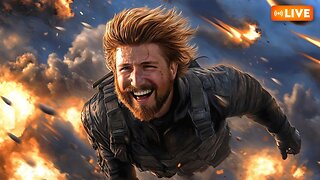 LIVE
LIVE
StevieTLIVE
1 hour agoFriday Night HYPE Warzone Games with Stevie
99 watching -
 LIVE
LIVE
SavageJayGatsby
22 hours agoLet's Play: Sea of Thieves | Friend Friday
126 watching -
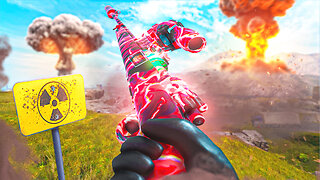 LIVE
LIVE
GritsGG
2 hours agoTop 250 Ranked Grind! Dubulars!🫡
56 watching -
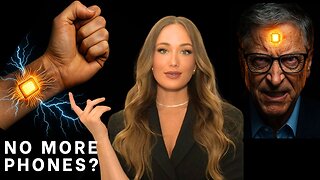 19:51
19:51
Robbi On The Record
23 hours agoElectronic Tattoos Measuring Thoughts? From iPhone to iSkin
22.3K15 -
 8:12
8:12
Hollywood Exposed
1 day agoJoy Behar Tried To Shame Tulsi Gabbard And Instantly FAILED
2.94K3 -
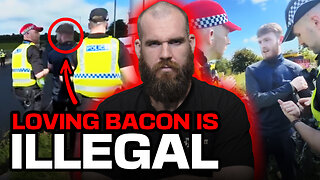 17:03
17:03
IsaacButterfield
17 hours ago $1.80 earnedBritish Man ARRESTED for Saying ‘I Love Bacon’ to a Muslim!!
3.52K6 -
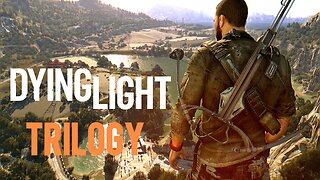 LIVE
LIVE
The Sufari Hub
2 hours ago🔴SUFARI & JAMES TAKE ON THE UNDEAD - DYING LIGHT THEN THE FOLLOWING
11 watching -
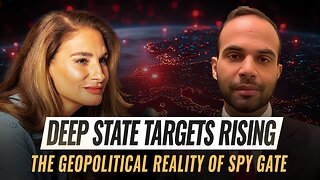 48:10
48:10
The Mel K Show
4 hours agoMel K & George Papadopoulos | Deep State Targets Rising: The Geopolitical Reality of Spy Gate | 9-5-25
13.9K1